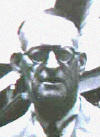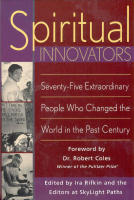|
DR. ROBERT HOLBROOK SMITH
1879-1950
In many ways, Dr. Bob and Bill W. revolutionized
the treatment of alcoholism and addictions by forming the first Alcoholics
Anonymous group. But they did have assistance from religious groups and medical
people before them who contributed many concepts. Dr. Bob and Bill W. then
adapted them to meet their own personal needs and the needs of those they
helped.
They were initially instrumental in helping
thousands of hopeless alcoholics achieve sobriety, and this grew to be millions
worldwide. This eventually led to the treatment of other addictions. Most of the
afflicted maintain there is no other way but A.A. And the key factor is
spirituality. AA's will confirm that, without that in place--a total surrender
to God--healing will not take place. Interestingly, that one step seems to be
the main stumbling block for many in the 12-step program.
AA has led to Al Anon, Nar Anon, Alateen, and other
12- step programs. It has also led to halfway houses and sober houses, houses
for teens, detoxification centres, primary residential treatment and extended
care facilities.
But when Robert Holbrook Smith started out his
life, little did he know just what he would be contributing to mankind. He was
born an only child to loving, well-educated parents who placed great emphasis on
Christian education. He later rebelled against organized religion, but his son
later said that it still had value to his Dad years later. Dr. Bob later
admitted he felt that his being an only child contributed to his selfishness
which characterizes alcoholism.
He had a very long and ugly struggle with heavy
drinking which frequently interrupted his life as a student and pre-med student.
After great pain on his part, and his mentors' parts at the colleges and
universities he attended, he managed to obtain his medical degree.
His medical practice was a horror story of trying
practice and battle his alcohol addiction and accompanying tremors which he had
to hide from everyone.
Eventually, his long suffering wife persuaded him
to attend a meeting of the Oxford Group which was a forerunner of AA. It was a
British-based Christian fellowship that advocated honesty, purity, unselfishness
and love. Their principles of self-survey, confession, restitution and service
to others grew into the 12 steps of AA.
Dr. Bob did struggle with drinking and attendance
at this group with his wife for 2 years while he wrestled spiritually, realizing
it was an important element in his healing.
About this time in his life, another fellow--Bill
Wilson--entered his life. (God moves in mysterious ways, his wonders to
perform.) Bill was sober finally, but struggling to stay that way until he had a
revelation that he needed to share his experience with a fellow alcoholic to
remain sober. He moved into Dr. Bob's house at their invitation, and he and Dr.
Bob practiced sobriety together with his wife as a spiritual companion. In this
quiet, contemplative atmosphere, they sewed the seeds that later grew into
Alcoholics Anonynous, realizing that they needed the fellowship of other
alcoholics to remain sober themselves.
Dr. Bob began taking his message of love and
service to his hospital in Akron, Ohio, where he eventually helped over 5,000
alcoholics to recover sobriety and whom Dr. Bob never charged for his services.
With some mentors, together he and Bill W. formed the first AA group and fine
tuned the Oxford Group's principles to formulate the 12 step program for
recovery. He took his last drink in June of 1935, and the next day began to form
the spiritual recovery group.
But they also made concessions to those with little
or no faith, that God was described as a Higher Power greater than ourselves;
God as we understand Him. This liberal interpretation opened the door for those
who would never have approached for help.
In establishing the principles of AA, they borrowed
the material from many sources, including Christianity, and translated them into
language easier for the alcoholics to accept.
e.g. spirituality--not religion
sobriety--not salvation
wrong doing--not sin
admitting--not confessing
strength and hope--not
resurrection
carrying the message--not sharing the
faith
But the absence of direct Christian references does
not take away from the program's Christian basis.
Some points to consider:
1. Earlier, Dr. Carl Jung, a Swiss psychologist,
maintained that there was a certain type of alcoholic for which there was
no hope without a spiritual or religious experience.
2. Bill W. had a conversion experience which began
his sobriety, and the need for fellowship with a fellow alcoholic led him to Dr.
Bob who badly needed someone with whom he could share his
experience.
3. Anonymity was important.
4. The 12 step model has become the model for many
popular lay-managed treatment programs for addictions, compulsions or
dependencies--nicotene, narcotics, cocaine, gambling, eating disorders,
etc.
It is important to realize that the humble journey
which Dr. Bob and his co-founders took, has led to healing for millions around
the world. If you multiply that by the numbers of affected family members, you
realize how powerful this journey was.
Quotes from Dr. Bob's speeches:
1. The spiritual approach was as useless as any
other if you soaked it up like a sponge and kept it to yourself. The purpose of
life was not "to get", but "to give".
2. Faith has to work 24 hours a day in and through
us, or we perish.
|



